An ongoing Swiss National Science Foundation (SNSF) project entitled “Nützliche Wissenschaft, Naturaneignung und Politik. Die Oekonomische Gesellschaft Bern im europäischen Kontext, 1750–1850” (“Useful science, nature appropriation and politics. The Economic Society of Berne in the European context, 1750–1850”) at the Institute of History of the University of Bern is concerned with the reform movement of the so-called “economic patriots”, and concentrates on the generation, communication, application, and consequences of new, “useful” bodies of knowledge. Albrecht von Haller is one of the figures who characterised the Economic Society of Bern through their simultaneous engagements as professional scientists, administrators, and members of the government. The focus of this project is less on Haller as an individual figure than on a comparative perspective that includes other scholarly magistrates such as Samuel Engel, Daniel Fellenberg, Emanuel von Graffenried von Burgistein, Niklaus Emanuel Tscharner, and Vinzenz Bernhard Tscharner. For more details in German see www.oeg.hist.unibe.ch. Martin Stuber
An SNSF project entitled “Arzt und Patient um 1730” (“Physician and patient around 1730”) is devoted to the study and editing of the detailed journal that young Haller, not even 30 years old, kept in Latin during the period of 1731–1736 while practicing medicine in Bern. This project is guided by evidence that our knowledge about the concrete day-to-day practice of medicine in earlier times is still quite incomplete, despite all the efforts of social history. This also applies to the physician’s practice as the central site of interaction between doctor and patient which exemplifies important social processes and structures. Medical practice is illuminated from the point of view of both physician and patient. The aim is to obtain new knowledge about the social structure, patient behaviour, the maladies described to the physician, the measures taken, and the concepts that guided treatment. Urs Boschung
In 2008, the 300th anniversary of Haller’s birth, a conference was held on “The Practice of Knowledge and the Figure of the Savant in the 18th Century”. The conference programme can be found here, and abstracts of the papers presented are available here. Publication of the proceedings is currently being prepared. Hubert Steinke
One of the central characteristics of modern science is its processual character. Scientific research is not a one-off, individual act of establishing truth but a continuum of efforts involving multifaceted interactions between individuals and institutions. This new, dynamic mode of science, which first began to prevail in the 18th Century and continues to prevail today, is exemplified in a paradigmatic way by the case of Göttingen, particularly in the interplay between the institutional network – the university, the university library, the “Göttingische Gelehrte Anzeigen”, the Society of Sciences (Societät/Gesellschaft der Wissenschaften) – and the person-centred networks of outstanding actors such as Gerlach Adolph von Münchhausen, Christian Gottlob Heyne, and Albrecht von Haller. A cooperative research project on these issues is currently being planned by different institutions in Bern and Göttingen. Martin Stuber

